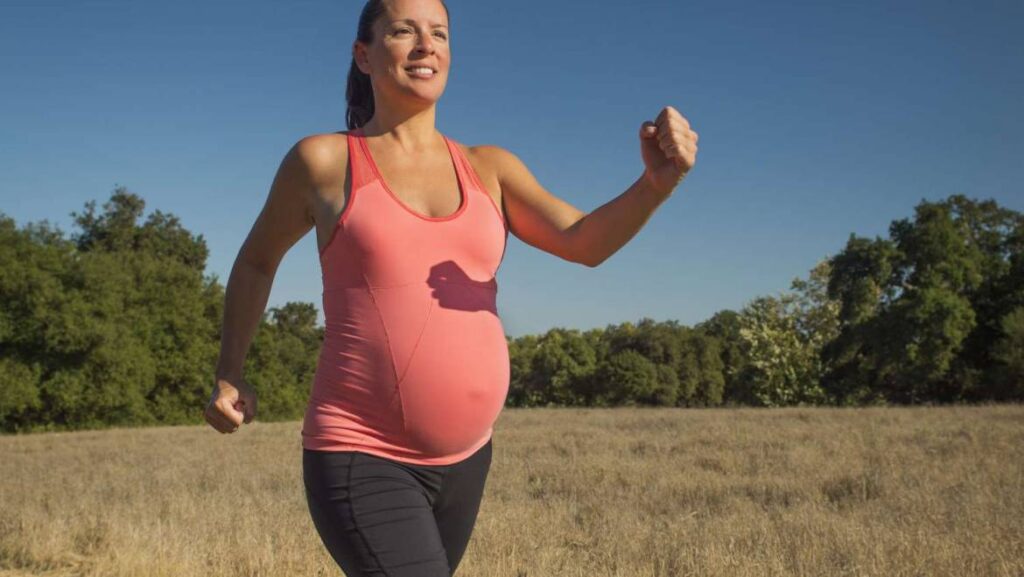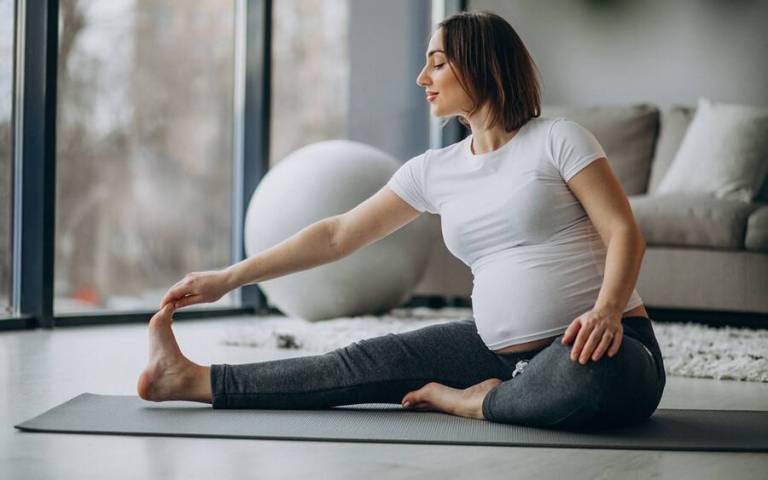
Being physically active and spending less time sitting down can help with conceiving, pregnancy, and mental well-being. Here is what you need to know about the benefits of exercise for fertility, quality of life, and emotional well-being

Being active can boost your fertility. Women who do regular, moderate exercise are more likely to conceive than women who do not exercise regularly. It doesn’t mean you need to join expensive gym classes; it means any physical activity that will raise your heartbeat, make you breathe faster, and make you feel warmer. You can still be able to walk without pausing for breath. For example, walking briskly; it too counts as moderate activity. If you have a high BMI (body mass index, which is a measure of body fat based on height and weight) and are not getting pregnant as soon as you expected, an intense workout may improve your chances of conceiving as it will help you lose weight.
Things to checkout:
- Stay strong and ready for labor
Pregnancy puts strain on the body. Many women find it easier to cope if they are fit and flexible. It has also been shown that labor is easier for active women during pregnancy.
- Reduce stress and anxiety
Family planning can be very exciting. It can be an anxious time for both parents to be. You will begin making changes in your life. Mental health problems such as depression and anxiety are common during pregnancy. Staying active physically and mentally can help to boost our mood and lessen our risk of stress and depression.
- Health benefits for baby
Staying fit will also benefit your child’s long-term health. It is believed that active women give birth to active and healthy children. It may help you and your partner to think about becoming active as a part of your preparation to be parents.
Wondering what kind of activity you would like to involve in your pregnancy routine and when your baby arrives? Walking in the park or going swimming. Follow a suitable workout plan and perform physical activities as a part of everyday life.
- Recommendations for exercise
For most women, if they have always been moderately active, continuing to exercise at the same levels before and during pregnancy is safe and healthy. If you are not active at all, start to build up your level of activity now as you begin preparing for pregnancy. The advice is to plan a workout session of at least 30 minutes daily, which includes moderate aerobic activity and strength exercises on two or more days a week that build all the major muscles.
Or
You can go for vigorous aerobics to strengthen your muscles.
Or
You can exercise by combining two or more days a week of strength training to strengthen all the major muscles with one or more days of moderate-to-intense aerobic exercise each week.
Any exercise that raises your heart rate, causes your breathing to quicken, and makes you feel warmer is considered moderate activity. Dancing, swimming, gardening, and brisk walking are examples of moderate exercise.
Any workout that causes you to breathe more quickly and forcefully is considered vigorous. Running, race walking, jogging, and aerobics are a few examples.
Exercises that build muscle include yoga, weightlifting, resistance band work, push-ups, and sit-ups.
Strength training should be done consistently until you are unable to execute it any longer if you want to reap the full health benefits.
5) Physical activity and ovulation
Your BMI is deemed underweight if it is less than 18.5. One cause could be overindulging in exercise or exerting too hard while ingesting insufficient calories to replenish the energy expended during the exercise. Reducing excessive body fat through consistent high-intensity exercise may interfere with the release of eggs during ovulation, potentially causing infertility. Low body mass index (BMI) poses concerns in addition to pregnancy-related risks. Reduce your activity to a modest level if you have trouble getting pregnant or irregular menstruation.
- Vigorous workout and fertility
Most women who indulge in a vigorous exercise regimen are not affected by infertility problems and continue their level of exercise by getting pregnant. However, a few women who have a low or healthy BMI and do an intense workout on most days, such as athletes, are affected by infertility. This is more likely to occur if you are dealing with the issues of irregular menses. This may be because the stress that vigorous exercise puts on the body can affect the hormones responsible for your periods. This can cause irregular periods and amenorrhoea (stopped or missed periods).
Work out at vigorous intensity and have been struggling to get pregnant, and do not have a regular period. It may be effective to change your activity to moderation and ensure you eat enough food to replace the energy used during exercise.
- When to consult a doctor about exercise and fertility
Speak to your doctor if you wish to have a baby but are concerned about exercise and the effects on your periods or fertility.
- Exercise and Intra Vitro fertilization (IVF)
IVF is a type of fertility therapy. Generally, the exercise advice for those receiving IVF treatment is similar for those trying to conceive without treatment.
In brief
Maintaining a healthy weight raises the likelihood of spontaneous conception and lowers the risk of infertility. An essential component of weight management is exercise. Exercise can undoubtedly improve mental and reproductive health when done in moderation. In addition to enhancing general health and wellbeing, low-to-moderate-intensity exercise can help reproductive treatments succeed. And remember to savor the endorphins (feel good hormones) from your preferred physical exercise.




